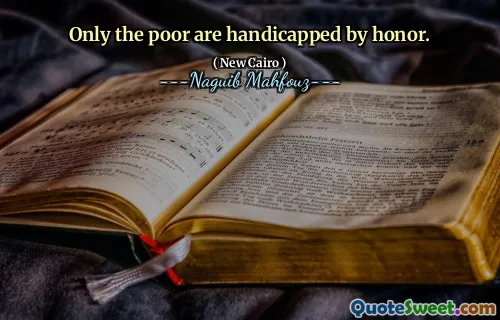I've always felt that your belongings have never been on a level with you.
In "Middlemarch" by George Eliot, the narrative explores the notion that personal possessions do not define an individual's worth or status. The quote emphasizes the idea that one's belongings, regardless of their material value, cannot elevate a person's identity or moral standing. Eliot suggests that true value stems from character and actions rather than the material things one possesses.
This perspective challenges societal norms that equate wealth with importance, reminding readers that authenticity and virtue hold greater significance. The character’s journey reflects a deeper understanding that personal growth and integrity shape a person's significance in the world more than their material wealth.


